Both countries are under the sun, people in them speak Greek, and the states offer residence permits. But once you delve deeper, the differences will begin to show. The decision to choose Cyprus or Greece for life does not depend on the taste for feta or beaches. It requires calculating costs, statuses, taxes, infrastructure accounting, and adaptation in 2025.
Is Cyprus or Greece better suited to life when analyzing housing and infrastructure?
In Cyprus, the average rent of a two-room apartment in Limassol will cost 1,500-1,800 euros. In Nicosia— it is cheaper: €900-1, 100. In Greece, on the continent, similar accommodation in Thessaloniki costs €600-850, in Athens — up to € 1,200.
When buying:
Cyprus offers properties from €2,000/m2 in Paphos to €4,500/m2 in Limassol.
Greece holds villas from €1,200/m2 in the provinces to €3,800/m2 in Athens.
The difference is in the quality of the finish, legal purity, and transparency of transactions. Cyprus accelerates the processing, completes transactions in 3-4 weeks. Greece requires a notary, long-term approval, waiting up to 3 months.
Daily living budget in Cyprus and Greece
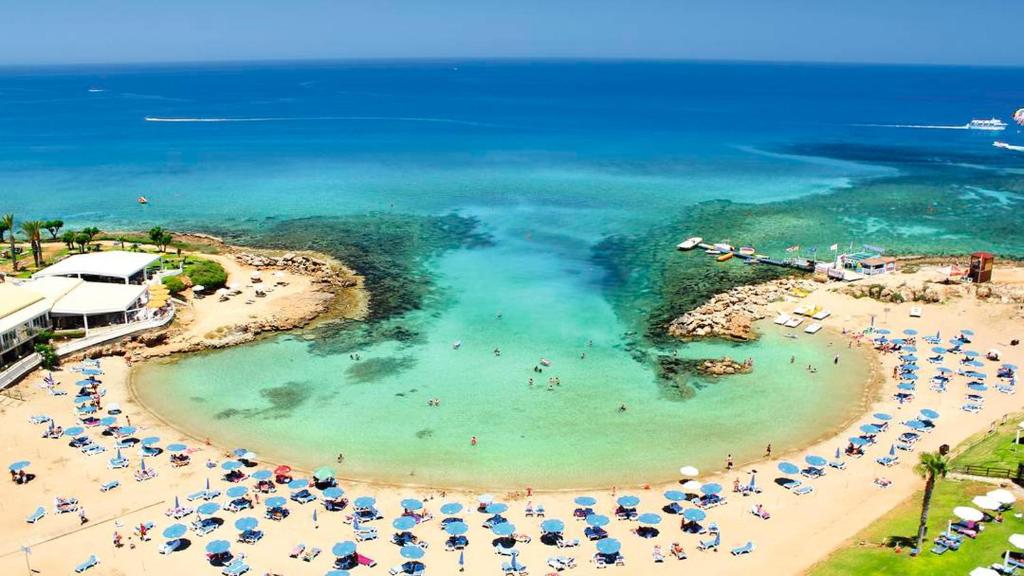 A family of two spends per month:
A family of two spends per month:
in Cyprus — from €2,300 (without rent);
in Greece — from €1,800 (without rent).
Grocery basket:
Cyprus: a liter of milk — €1.4, chicken — €6.5/kg, gasoline — €1.55/l.
Greece: milk — €1.1, meat — €5.8/kg, petrol — €1.8/l.
Cyprus or Greece is better for life — the real budget decides. The first option is more convenient, cleaner, and faster. The second one is cheaper, but slower.
Legal status: Residence permit, permanent residence and access to citizenship
Permanent residence in Cyprus is issued under the investment program: €300,000 — real estate, income from €30,000 per year, additional payments for family members. The terms are up to 6 months, and the status is indefinite. Permanent residence in Greece requires investments of €250,000 in real estate, but the card will have to be renewed every 5 years, confirming the existence of an asset.
A residence permit in both countries requires:
address availability;
medical insurance;
no criminal record;
minimum income.
Cyprus or Greece is better for life — it shows the speed and reliability of the status. The first country gives you a perpetual card faster. The second one is cheaper, but requires regular updates.
Is Cyprus or Greece better for living in terms of taxes?
Taxes in Cyprus for foreigners:
Income tax — 0% up to €19,500, from €19,501 — 20-35%.
No inheritance tax and no dividends (with non-dom status).
Corporate tax — 12.5%.
Taxes in Greece for foreigners:
Income tax — from 22% to 45%.
Annual property tax.
The bonus program for “new tax residents” is a 50% discount on personal income tax for 7 years.
Culture, climate, and adaptation: how the environment shapes the way of life
Each country dictates its own rhythm, its own habits and its own style of survival. To understand whether Cyprus or Greece is better for life, it is important to understand not only the prices, but also what is happening between the lines: the atmosphere, people’s behavior, language, seasonality.
Language and level of integration
Cyprus creates a low barrier to adaptation. The official language is Greek, but the English—speaking infrastructure works almost everywhere: from lease agreements to hospital referrals. In Cyprus, more than 75% of the population uses English fluently in everyday life, especially in large cities and on the coast. Banks, pharmacies, clinics, lawyers — all processes are run in English without being forced to integrate.
In Greece, the situation is diametrically different. Even in Athens, basic English is used only in tourist spots. Government agencies, courts, medical institutions, and even the rental sector require basic knowledge of Greek. Signatures, notices, and legal documents are all drawn up in Greek, which automatically requires either knowledge of the language or the cost of an interpreter and lawyer. Cyprus wins unconditionally for a quick and comfortable adaptation.
Climate and impact on life
In Cyprus, summer lasts from May to October, with temperatures reaching +34°C, but humidity remains moderate. It rains for 20-30 days a year, mostly in winter. The average temperature in January is +15°C, heating is used selectively. The architecture is designed to keep cool, air conditioners work almost everywhere.
Advantages:
Weather conditions are stable all year round.
No sudden fluctuations.
A minimum of seasonal exacerbations in medicine (for example, acute respiratory viral infections).
The opportunity to lead an active lifestyle without seasonal restrictions.
In Greece, the climate is diverse and sometimes harsh. In the continental part (Athens, Thessaloniki) — winter temperatures drop to +5°C, snowfall is possible. In summer, the air warms up to +38°C with high humidity. On the islands (Crete, Rhodes), the heat is easier to bear, but storms and pressure drops are possible in the off—season. Houses often do not have insulation, heating is connected via diesel installations or electric radiators.
Features:
Weather instability in winter.
Heating costs in 4-5 months of the year.
Increased humidity in coastal regions.
The locals are used to the climatic changes, but the newcomers are having a hard time adapting.
Cyprus or Greece is better for living in terms of climate — shows the sustainability of Cyprus. Especially for families with children, the elderly and those who do not tolerate humidity or sudden temperature changes.
Mentality, daily rhythm and relationships
Cyprus: slowness and restraint. Life goes on without fuss. People are polite, but not intrusive. They rarely interfere in the affairs of others and respect personal boundaries. The crime rate is low, and the locals behave predictably. Office hours end early, and there is a two—hour lunch break. In government agencies, although not without queues, they serve calmly, without pressure.
Key features:
Moderate speed of life.
A minimum of stress and social outbursts.
High level of trust in business and everyday life.
An abundance of British habits in the organization of everyday life (including left-hand traffic and a 13-hour rhythm).
Greece: temperament and energy. Life is in full swing. People speak loudly, emotionally, react quickly, and sometimes aggressively. Respect for formalities is expressed through mimicry: locals know how to circumvent the rule, apply pressure through familiarity, and achieve what they need through volume rather than procedure. In small towns, a rural model of communication is evident: constant questioning, advice, and neighborhood pressure.
Features:
Strong rhetorical culture (everyone talks and argues).
High level of social interaction.
Difficulties with personal boundaries.
Problems with compliance with formal procedures (many processes require “urgent reminders”).
Conclusion: Cyprus or Greece is better for life in terms of mentality — it depends on preferences: Cyprus is for those who are looking for stability and distance, Greece is for those who are ready to participate in a public spectacle.
Adaptation: the time and price of entry
In Cyprus, the adaptation takes 1-2 months. Buying or renting real estate, connecting water and electricity, opening a bank account and taking out insurance is carried out without the involvement of a lawyer. The English-speaking staff explains everything step by step, and the service works flexibly. Social connections arise through business or children — Cypriots are not imposed, but they are ready to support.
In Greece, adaptation takes up to 6-9 months. Each procedure requires a translation, a notary, and approval from a government agency. Queues for submitting documents in some cases reach 30-40 days. Without an intermediary, it is almost impossible to understand registration, taxation, and rental rules. At the same time, local people are actively involved in communication, which helps to speed up socialization.
Conclusion: Cyprus or Greece is better for life, integration complexity shows. Cyprus requires less effort and expenses, Greece requires more effort, but it gives you a circle of friends faster.
Cyprus or Greece for life in terms of quality and cost of medicine
In Cyprus, an international school will cost €7,000-11,000 per year. In Greece — in Athens up to €8,000, in the provinces — less. Schools in both countries require language proficiency, but Cyprus offers more English-speaking options.
Medicine:
Cyprus — Gesy state system, minimum fees, fee base of €10-30 per visit.
Greece — insurance through EOPYY, tariff surcharges, complex destination system.
When to choose Cyprus and when to choose Greece
Cyprus is suitable if:
An English-speaking environment is required;
an investment is planned with a quick exit to permanent residence;
a tax residence with benefits is important;
The simplicity of the bureaucracy and access to government services are critical.;
we need a climate without dampness and precipitation.
Greece wins if:
The budget for moving is limited;
interested in buying cheap real estate;
willingness to integrate into local culture;
I’m not afraid of a complicated administration;
The priority is the mentality and proximity to the European mainland.
Conclusion: Making a choice requires being honest with yourself
 Both countries grant residence permits, access to the EU, the sea and the climate. But the formula of life in each is completely different. Cyprus is more structured, more pragmatic, and more expensive. Greece is wider, more sincere, cheaper.
Both countries grant residence permits, access to the EU, the sea and the climate. But the formula of life in each is completely different. Cyprus is more structured, more pragmatic, and more expensive. Greece is wider, more sincere, cheaper.
The decision requires calculation, understanding of the scenario for 3-5 years ahead and a choice between stability or romantic chaos. It is better to choose the country that will provide exactly the right platform, and not just a visa in your passport.



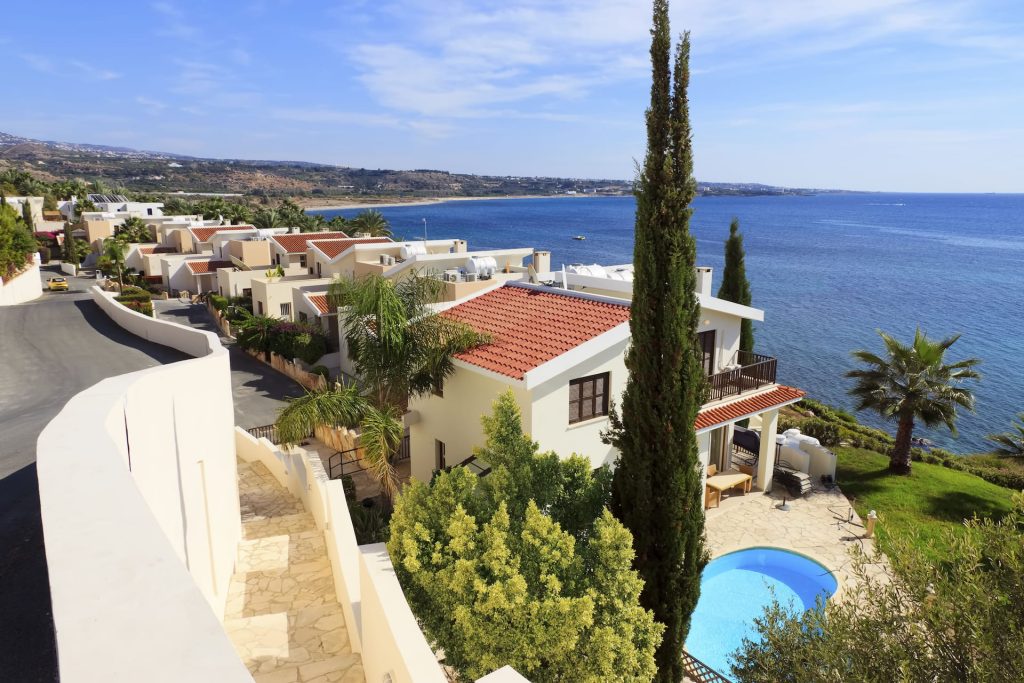 Investments in foreign commercial property open up new horizons for portfolio diversification. The advantages of investments lie in reduced dependence on the local economy, currency fluctuations and political changes. Owning assets in several countries provides capital stability in case of crises in one of the markets. Choosing between office space in Berlin, hotels in Cyprus and holiday apartments in Greece allows you to intelligently spread risks between sectors and regions. The Greek market has a special place in this list: it offers attractive start-up conditions and growth prospects due to the Golden Visa programme, which facilitates obtaining a residence permit through the purchase of real estate from 250,000 euros.
Investments in foreign commercial property open up new horizons for portfolio diversification. The advantages of investments lie in reduced dependence on the local economy, currency fluctuations and political changes. Owning assets in several countries provides capital stability in case of crises in one of the markets. Choosing between office space in Berlin, hotels in Cyprus and holiday apartments in Greece allows you to intelligently spread risks between sectors and regions. The Greek market has a special place in this list: it offers attractive start-up conditions and growth prospects due to the Golden Visa programme, which facilitates obtaining a residence permit through the purchase of real estate from 250,000 euros.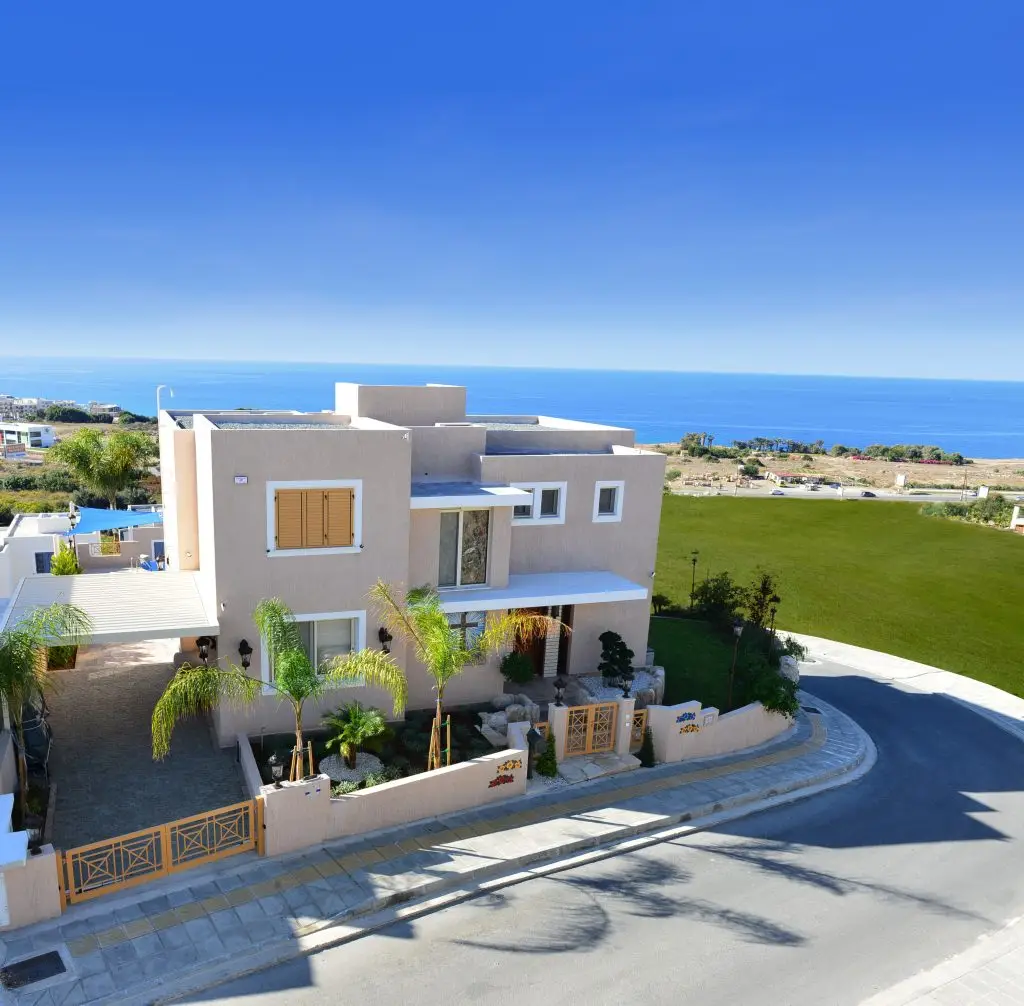 The benefits of investing in overseas commercial property go far beyond simple profitability. Such investments form a stable, profitable and reliable basis for long-term capital preservation and growth. With the right strategy, foreign assets provide stability for the financial future, risk diversification and access to global markets. Greece, with its combination of rising prices, affordable entry price tags, tax advantages and residence permit programme, deserves special attention in the portfolio of the modern investor.
The benefits of investing in overseas commercial property go far beyond simple profitability. Such investments form a stable, profitable and reliable basis for long-term capital preservation and growth. With the right strategy, foreign assets provide stability for the financial future, risk diversification and access to global markets. Greece, with its combination of rising prices, affordable entry price tags, tax advantages and residence permit programme, deserves special attention in the portfolio of the modern investor.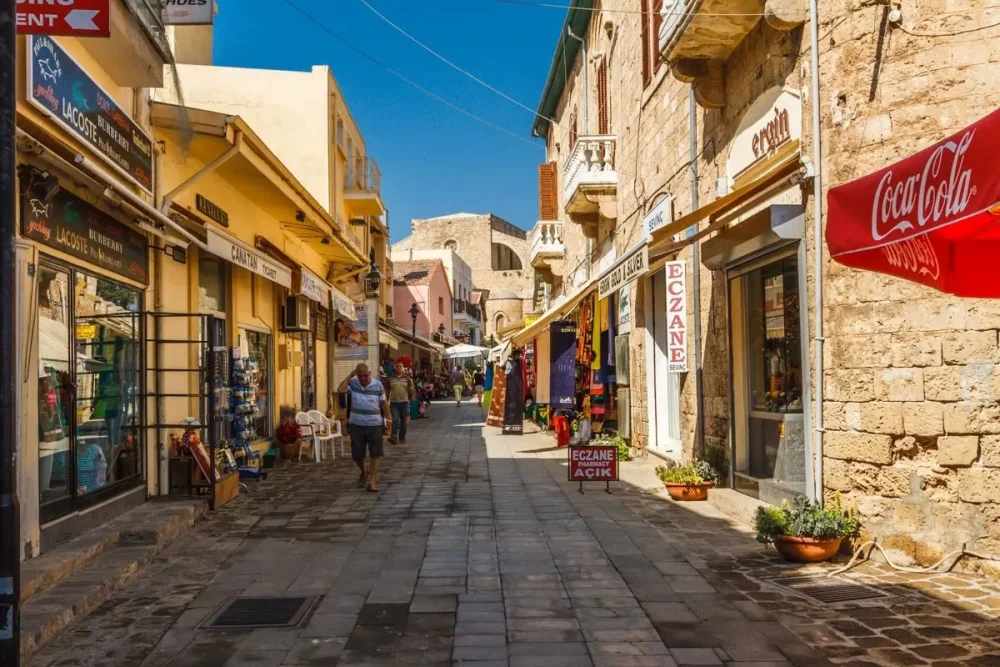
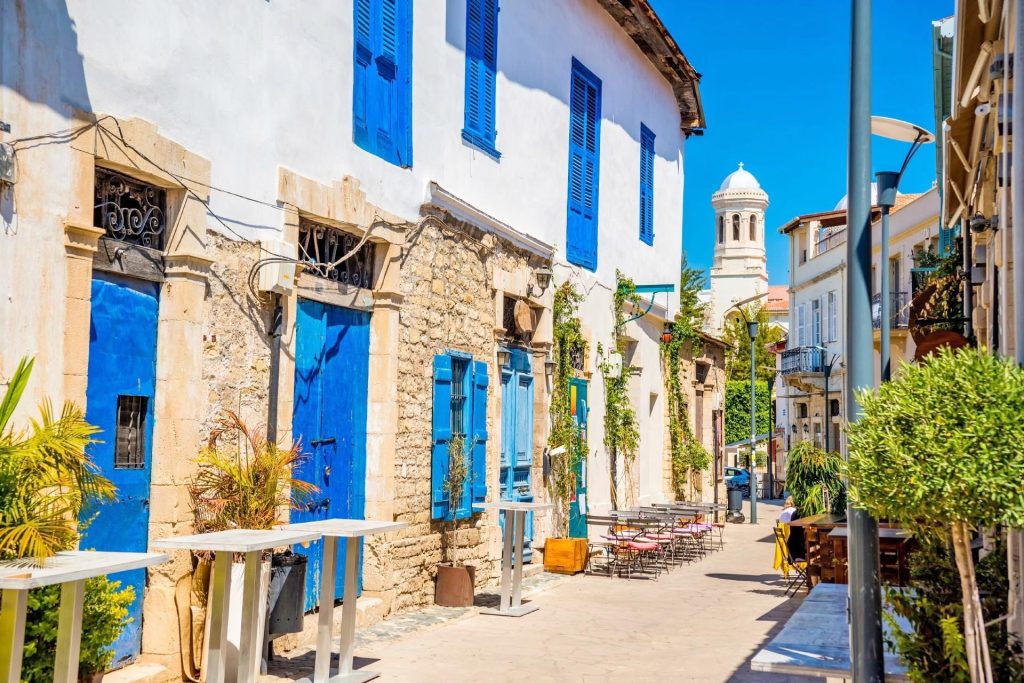 Despite the many pluses, living on the island has its challenges that you should consider before moving:
Despite the many pluses, living on the island has its challenges that you should consider before moving: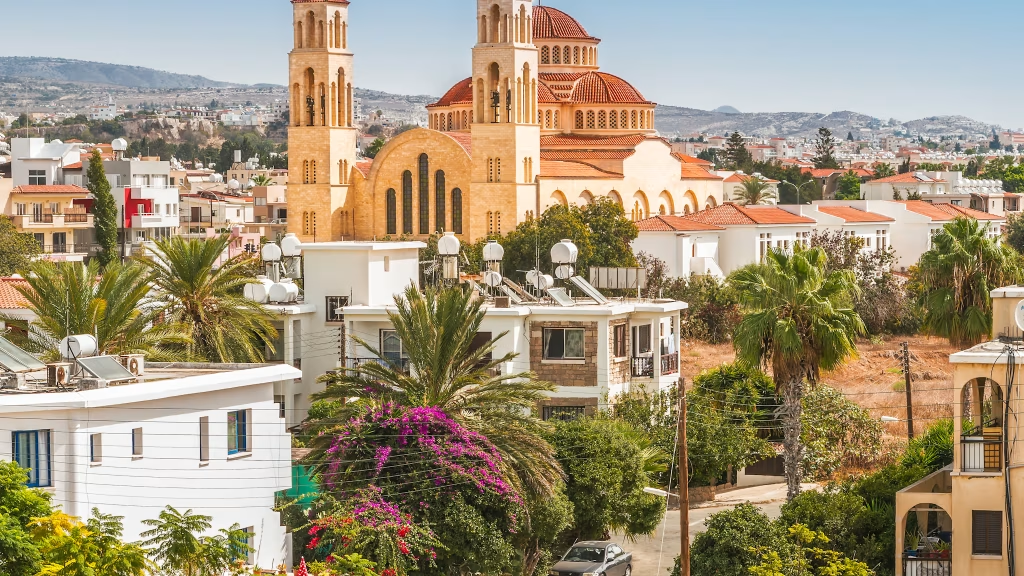 Living in Cyprus opens up prospects for comfortable living, professional growth and profitable investments. Having assessed all the pros and cons, everyone will be able to find a home on this sunny island. It is only important to prepare in advance for all aspects of the move to make the process as convenient and successful as possible.
Living in Cyprus opens up prospects for comfortable living, professional growth and profitable investments. Having assessed all the pros and cons, everyone will be able to find a home on this sunny island. It is only important to prepare in advance for all aspects of the move to make the process as convenient and successful as possible.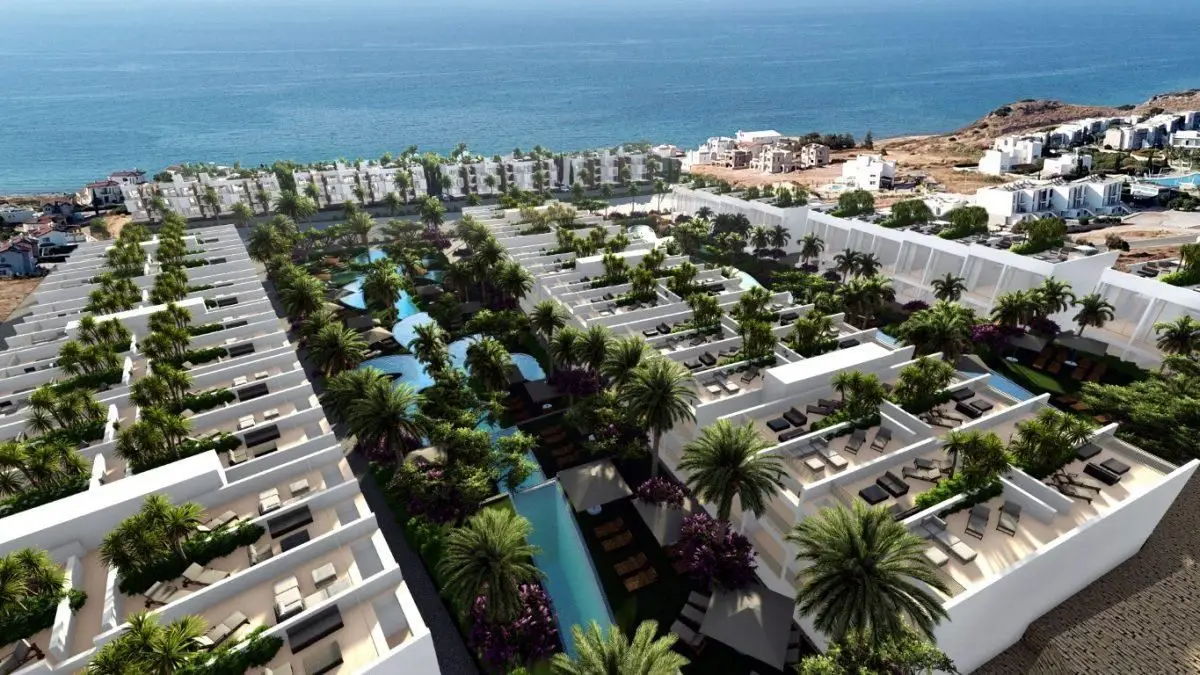
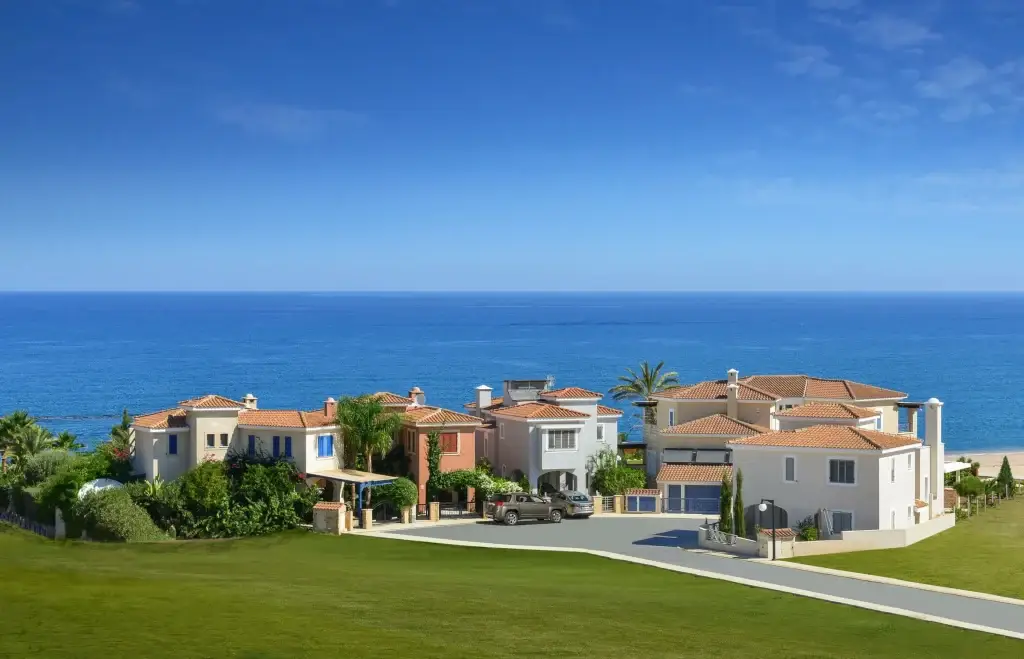 The process of obtaining a Cyprus residence permit for investment requires strict adherence to a number of procedures. It is important to understand all the steps and comply with local legislation to avoid delays and problems. Thanks to a simplified system and the support of local lawyers, the process is clear and quick, even for those who are new to investing abroad.
The process of obtaining a Cyprus residence permit for investment requires strict adherence to a number of procedures. It is important to understand all the steps and comply with local legislation to avoid delays and problems. Thanks to a simplified system and the support of local lawyers, the process is clear and quick, even for those who are new to investing abroad.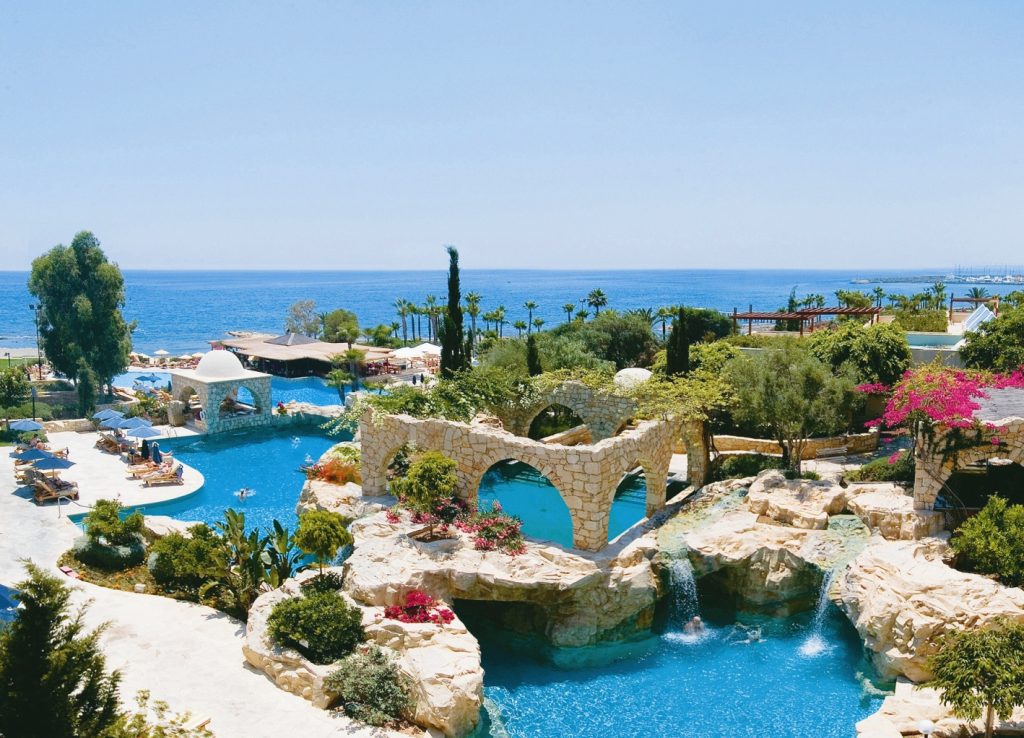 The Cyprus Permanent Residence Programme for property investment is a unique opportunity for those seeking to secure a stable future for themselves and their family, a quality life and access to the European market. Thanks to transparent conditions, fast processing of applications and high quality of properties, Cyprus has become one of the most attractive destinations for investors from Russia and other countries.
The Cyprus Permanent Residence Programme for property investment is a unique opportunity for those seeking to secure a stable future for themselves and their family, a quality life and access to the European market. Thanks to transparent conditions, fast processing of applications and high quality of properties, Cyprus has become one of the most attractive destinations for investors from Russia and other countries.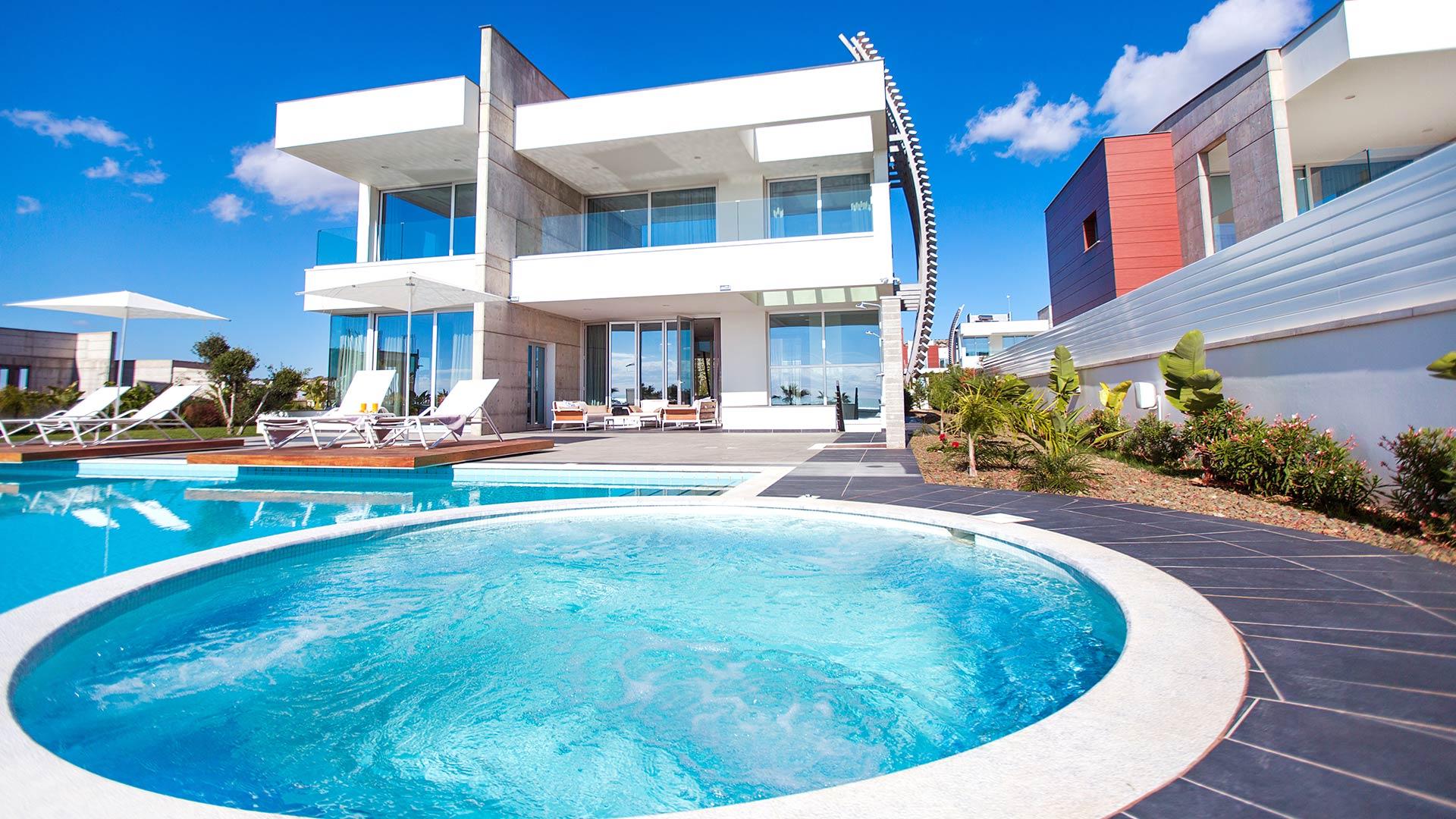
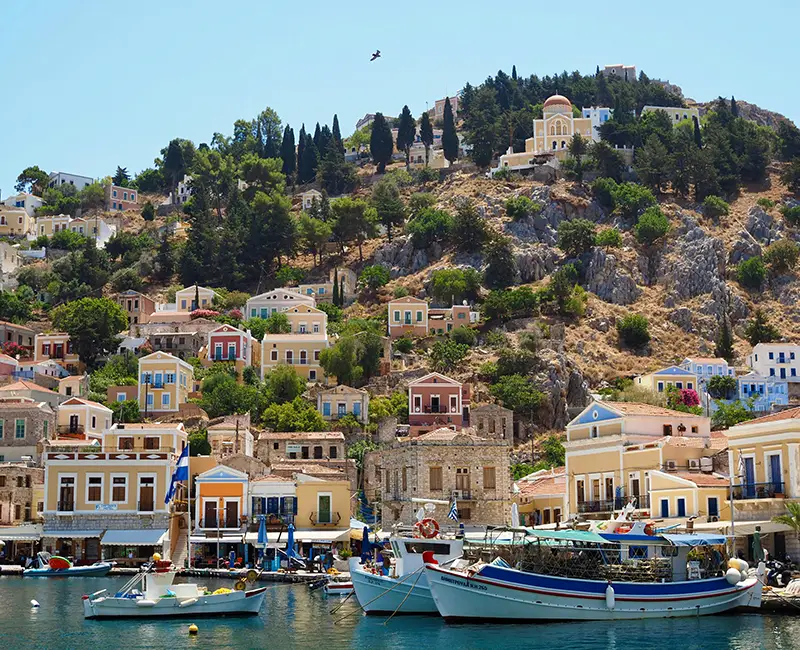 The purchase process begins with the selection of the property and legal due diligence. The signing of the sale and purchase agreement takes place in the presence of a lawyer who checks the property documents. For payment, an account will be opened in a bank where the deposit will be kept. The transaction is finalised with the registration of the ownership right in the Land Registry. Legal control at every stage ensures safety and transparency.
The purchase process begins with the selection of the property and legal due diligence. The signing of the sale and purchase agreement takes place in the presence of a lawyer who checks the property documents. For payment, an account will be opened in a bank where the deposit will be kept. The transaction is finalised with the registration of the ownership right in the Land Registry. Legal control at every stage ensures safety and transparency.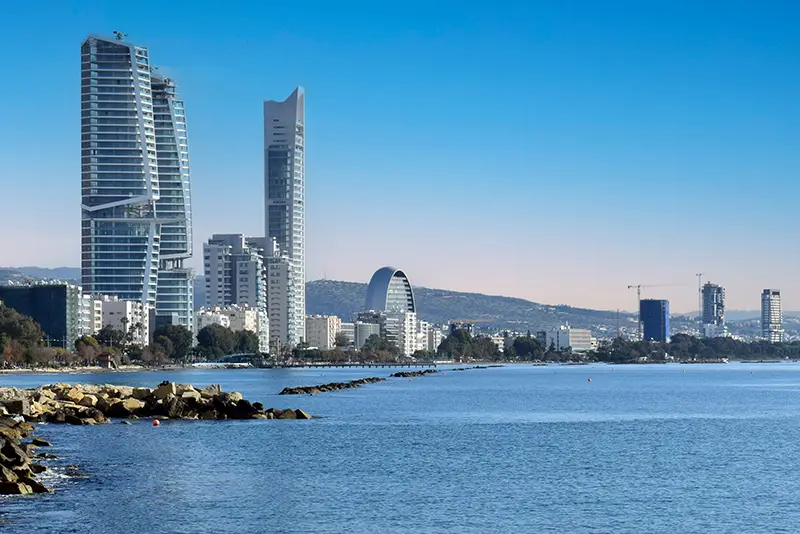 Investing in property in Cyprus offers a wealth of opportunities, from stable income to easy access to the European market. Rising house prices, a loyal tax policy and a stable economy create ideal conditions for long-term investments. The average increase in the value of properties reaches 10-15% annually, which makes buying square metres in Cyprus not only a safe but also a profitable strategy.
Investing in property in Cyprus offers a wealth of opportunities, from stable income to easy access to the European market. Rising house prices, a loyal tax policy and a stable economy create ideal conditions for long-term investments. The average increase in the value of properties reaches 10-15% annually, which makes buying square metres in Cyprus not only a safe but also a profitable strategy.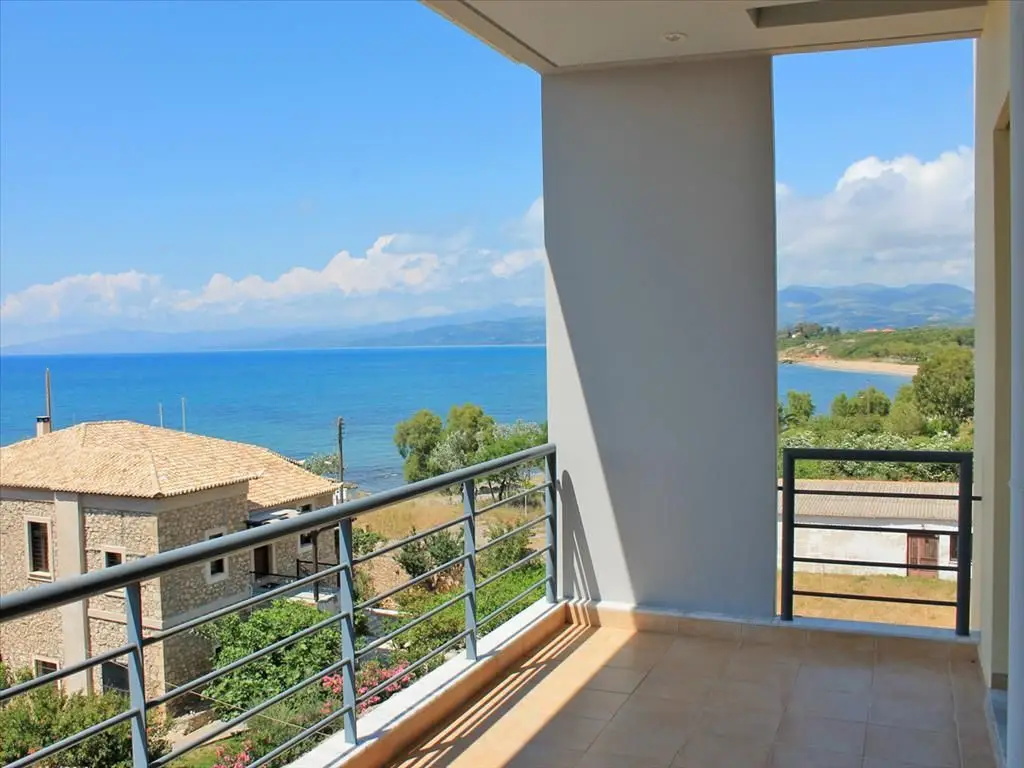
 Santorini is an island that captivates at first sight with its views. Snow-white houses with blue domes against the azure sea create a unique image. Here you can buy a flat in Greece by the sea and get access to the most beautiful sunsets in the world, which can be seen from the caldera.
Santorini is an island that captivates at first sight with its views. Snow-white houses with blue domes against the azure sea create a unique image. Here you can buy a flat in Greece by the sea and get access to the most beautiful sunsets in the world, which can be seen from the caldera. Prestigious Attica, vibrant Crete or romantic Santorini, each location offers unique opportunities for those looking to invest in their future. Buying a flat in Greece by the sea is not just about buying a property, it is about making the dream of living by the azure coast a reality.
Prestigious Attica, vibrant Crete or romantic Santorini, each location offers unique opportunities for those looking to invest in their future. Buying a flat in Greece by the sea is not just about buying a property, it is about making the dream of living by the azure coast a reality.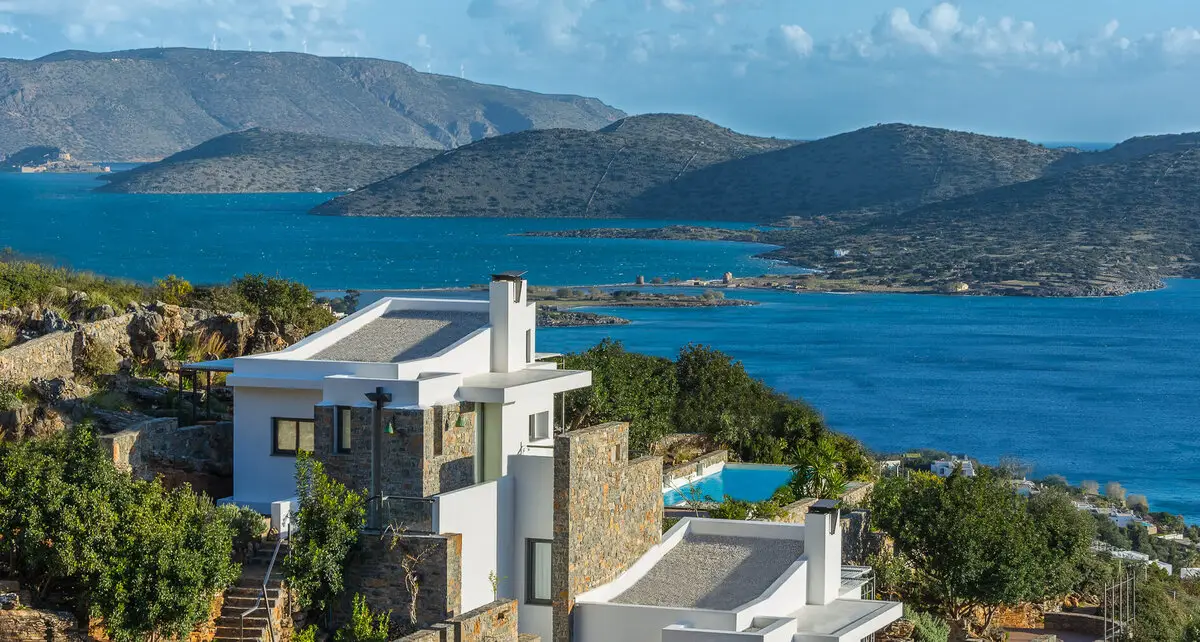
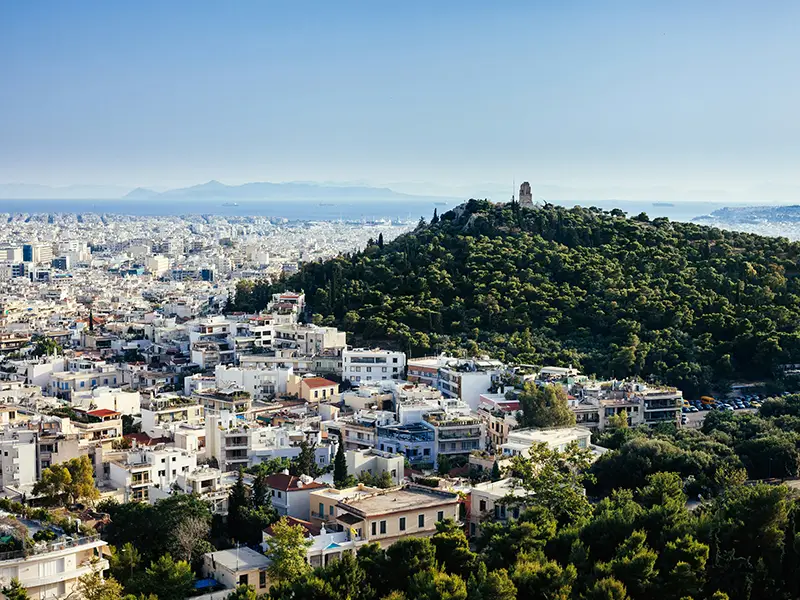 Buying a home in Greece always raises a lot of questions: which cities are the most attractive, what you should pay attention to, and what are the peculiarities of the property market in each region. Each location offers its own unique lifestyle, investment opportunities and level of affordability.
Buying a home in Greece always raises a lot of questions: which cities are the most attractive, what you should pay attention to, and what are the peculiarities of the property market in each region. Each location offers its own unique lifestyle, investment opportunities and level of affordability. Buying a property in Greece in 2024 is a good idea. Athens and Thessaloniki are suitable for those who want to invest in an urban lifestyle with active rentals, while Corfu and other islands are suitable for those looking for privacy and high income from tourism.
Buying a property in Greece in 2024 is a good idea. Athens and Thessaloniki are suitable for those who want to invest in an urban lifestyle with active rentals, while Corfu and other islands are suitable for those looking for privacy and high income from tourism.
 The sunny country opens its doors to every scenario of property use: from living to running a business. Real estate attracts with comfort and favourable conditions, especially for retirees who are looking for a cosy and warm place to live a quiet life in Greece. It is the perfect atmosphere for those who want to meet the sunset of their life surrounded by beautiful scenery and good-natured neighbours. There are plenty of options, from small apartments to cosy houses in picturesque villages. Both for lovers of travelling and for those who want to spend the summer by the sea.
The sunny country opens its doors to every scenario of property use: from living to running a business. Real estate attracts with comfort and favourable conditions, especially for retirees who are looking for a cosy and warm place to live a quiet life in Greece. It is the perfect atmosphere for those who want to meet the sunset of their life surrounded by beautiful scenery and good-natured neighbours. There are plenty of options, from small apartments to cosy houses in picturesque villages. Both for lovers of travelling and for those who want to spend the summer by the sea. Investing in property in Greece is not only a financially rewarding decision, but also an opportunity to be part of an incredible history, experience Greek hospitality and enjoy the unique nature. The country offers excellent prospects for investors looking for stable investments with high returns. Whether the purchase is for personal use, rental or business, every investment becomes part of the big dream of living on the shores of the Aegean Sea.
Investing in property in Greece is not only a financially rewarding decision, but also an opportunity to be part of an incredible history, experience Greek hospitality and enjoy the unique nature. The country offers excellent prospects for investors looking for stable investments with high returns. Whether the purchase is for personal use, rental or business, every investment becomes part of the big dream of living on the shores of the Aegean Sea.
 The island has seen a steady rise in prices, with over 45% since 2016 in popular areas including Limassol, Nicosia and Paphos. The reasons to invest in residential property are reinforced by limited supply, especially on the coast, and demand from EU and Middle Eastern nationals.
The island has seen a steady rise in prices, with over 45% since 2016 in popular areas including Limassol, Nicosia and Paphos. The reasons to invest in residential property are reinforced by limited supply, especially on the coast, and demand from EU and Middle Eastern nationals.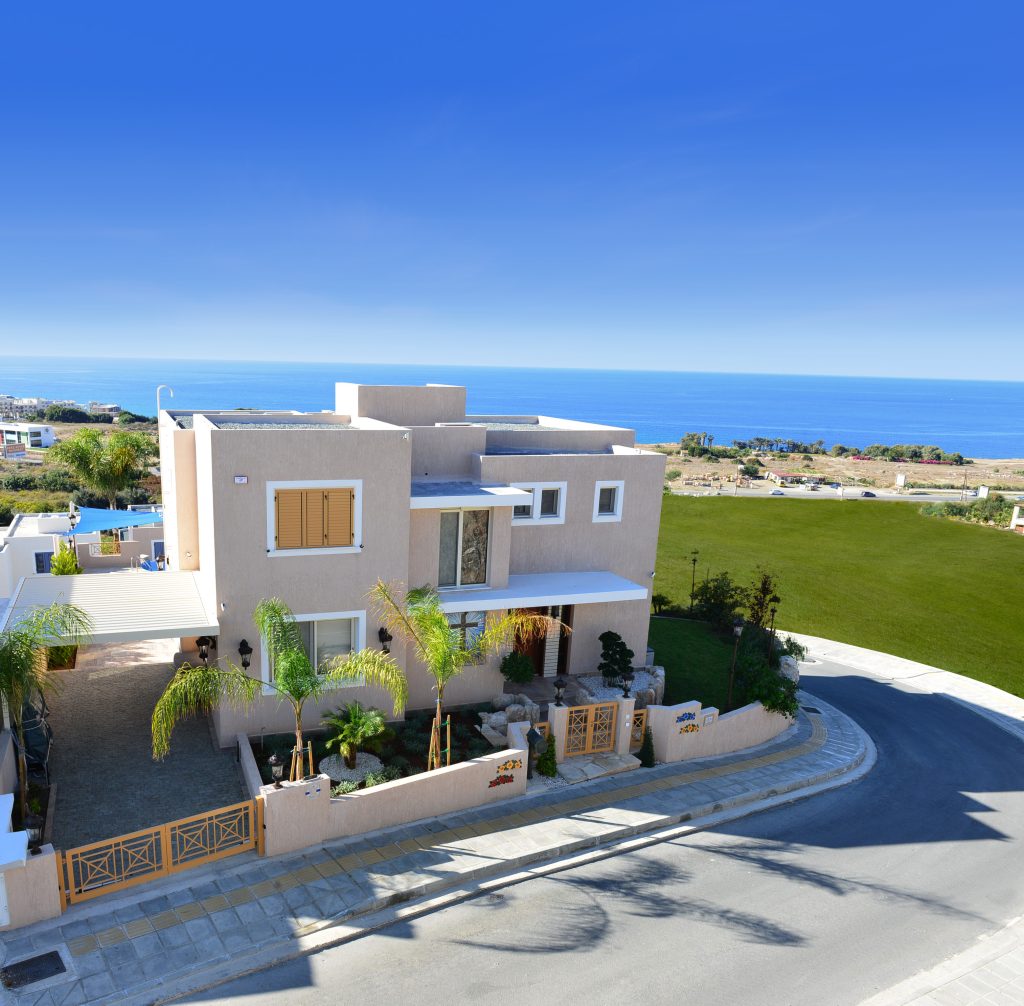 The way of investing in facilities combines financial efficiency with the comfort of living. The key advantages of investing in the housing market are concentrated in specific benefits:
The way of investing in facilities combines financial efficiency with the comfort of living. The key advantages of investing in the housing market are concentrated in specific benefits:
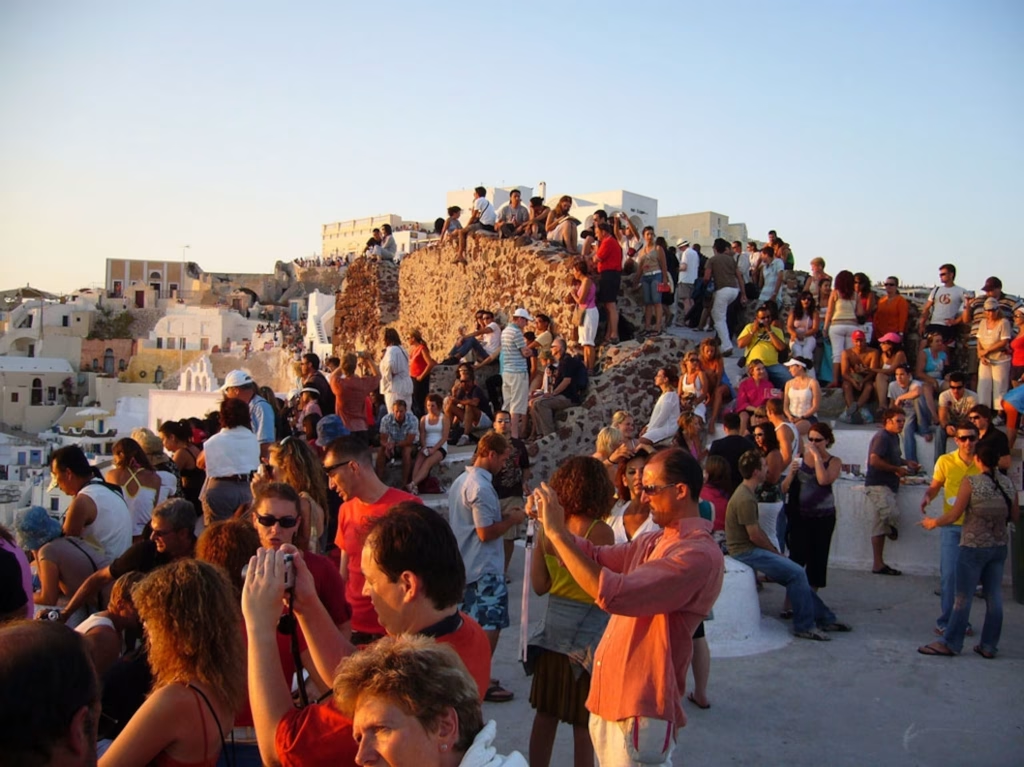 To soberly answer whether it is worth moving to Greece, it is necessary to take into account the local labour market. The average salary is around €1100 per month (2024), with the minimum wage set at €910. The unemployment rate has fallen to 10.4 per cent, but regional disparities remain: Athens and Thessaloniki offer more opportunities, while islands and provinces suffer from seasonality.
To soberly answer whether it is worth moving to Greece, it is necessary to take into account the local labour market. The average salary is around €1100 per month (2024), with the minimum wage set at €910. The unemployment rate has fallen to 10.4 per cent, but regional disparities remain: Athens and Thessaloniki offer more opportunities, while islands and provinces suffer from seasonality.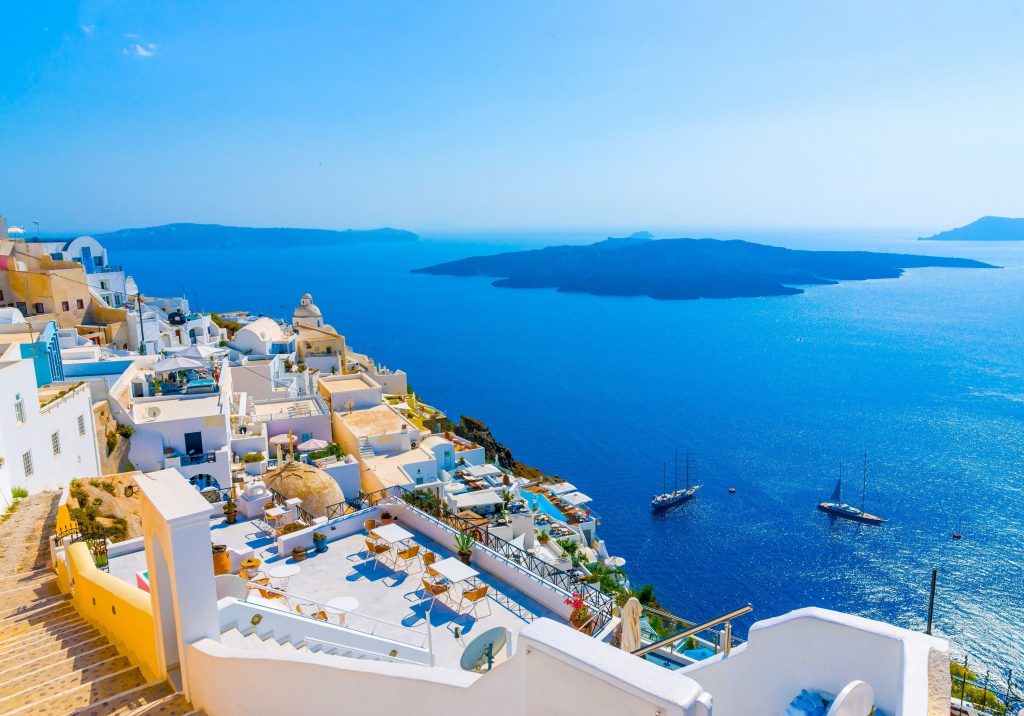 The answer to the question whether to move to Greece depends on expectations and goals. For investors – a window with reasonable rates and simplified access to residence permits. For remote professionals – a chance to live by the sea with low costs. For families – a chance to raise children in an environment with a mild climate and a moderate pace. The country offers a balanced format confirmed by statistics, examples and testimonials.
The answer to the question whether to move to Greece depends on expectations and goals. For investors – a window with reasonable rates and simplified access to residence permits. For remote professionals – a chance to live by the sea with low costs. For families – a chance to raise children in an environment with a mild climate and a moderate pace. The country offers a balanced format confirmed by statistics, examples and testimonials.
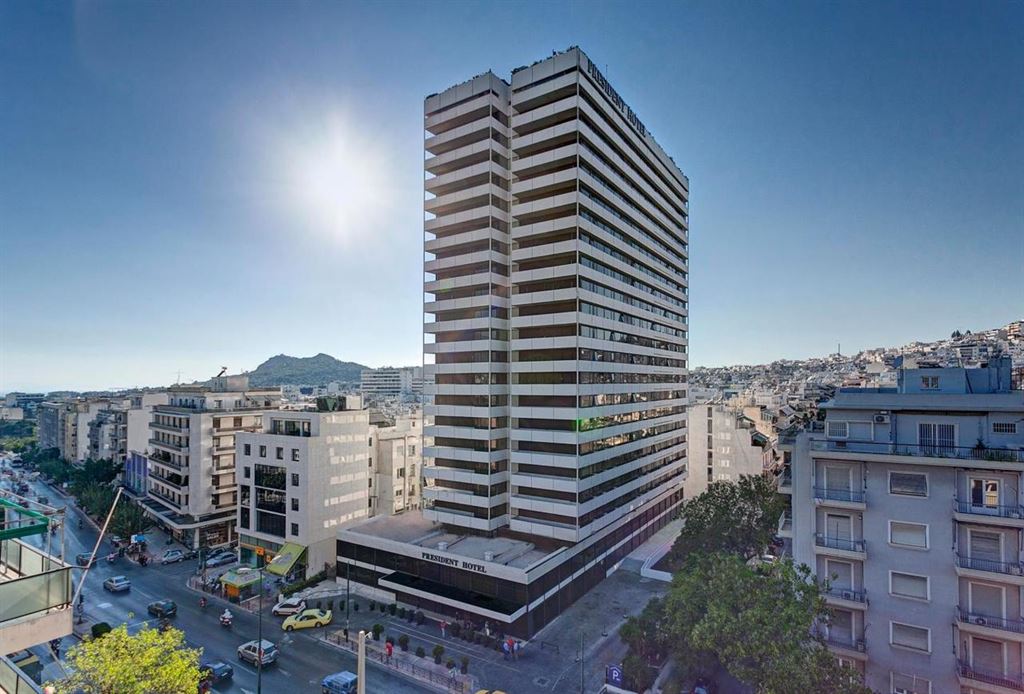 To obtain a residence permit under the Golden Visa programme, a number of legal, financial and technical conditions must be met, each of which is checked by the authorised structures before and after the purchase of the property. The programme does not require mandatory language skills, examinations or prior residence, but it does have clear requirements:
To obtain a residence permit under the Golden Visa programme, a number of legal, financial and technical conditions must be met, each of which is checked by the authorised structures before and after the purchase of the property. The programme does not require mandatory language skills, examinations or prior residence, but it does have clear requirements: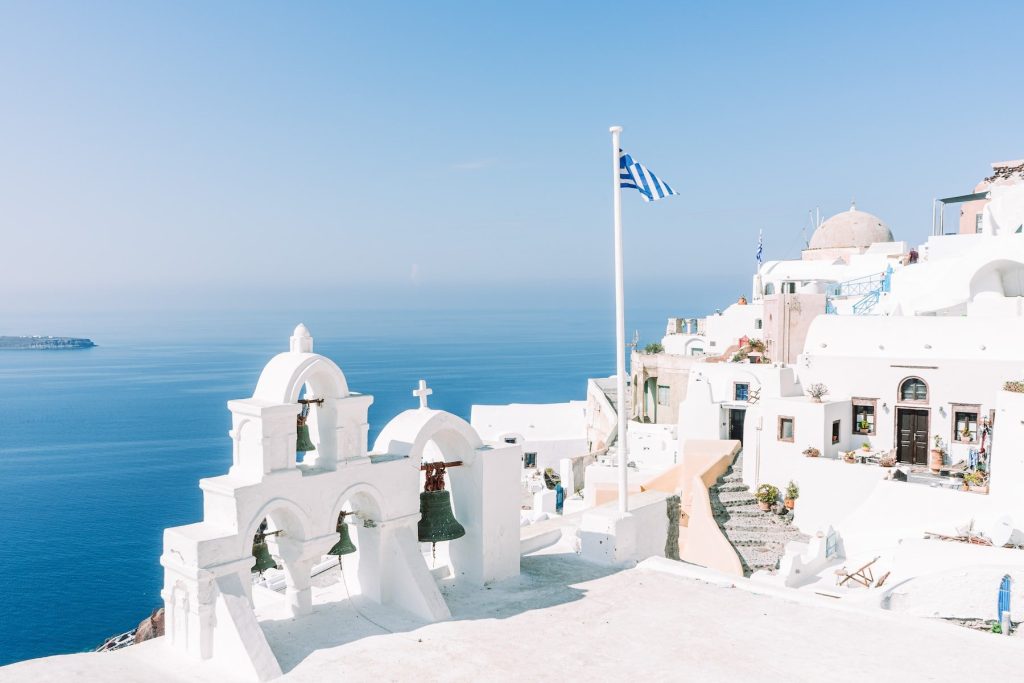 “Greece’s Golden Visa is a powerful tool for strategic flexibility and security. With the right approach, property investment generates income, greatly simplifies international logistics and provides a secure base in the European Union. Despite the rising entry threshold in certain regions, the programme remains highly popular due to its simplicity, transparency and predictability. These are the key parameters for those who are building a long-term architecture for their financial and personal security.
“Greece’s Golden Visa is a powerful tool for strategic flexibility and security. With the right approach, property investment generates income, greatly simplifies international logistics and provides a secure base in the European Union. Despite the rising entry threshold in certain regions, the programme remains highly popular due to its simplicity, transparency and predictability. These are the key parameters for those who are building a long-term architecture for their financial and personal security.
 A city with a business reputation. Demand from international companies consistently maintains a high price level. In the centre from 3,000 €/m², on the outskirts from 2,100 €/m². The nearest completion of major projects is the third quarter of 2025.
A city with a business reputation. Demand from international companies consistently maintains a high price level. In the centre from 3,000 €/m², on the outskirts from 2,100 €/m². The nearest completion of major projects is the third quarter of 2025. The choice of location, legal due diligence, specialist support and knowledge of market realities form a safe and profitable purchase. Thus, successful investment requires a comprehensive approach and due diligence at every stage, which is the key to safeguarding your funds and achieving your goals.
The choice of location, legal due diligence, specialist support and knowledge of market realities form a safe and profitable purchase. Thus, successful investment requires a comprehensive approach and due diligence at every stage, which is the key to safeguarding your funds and achieving your goals.